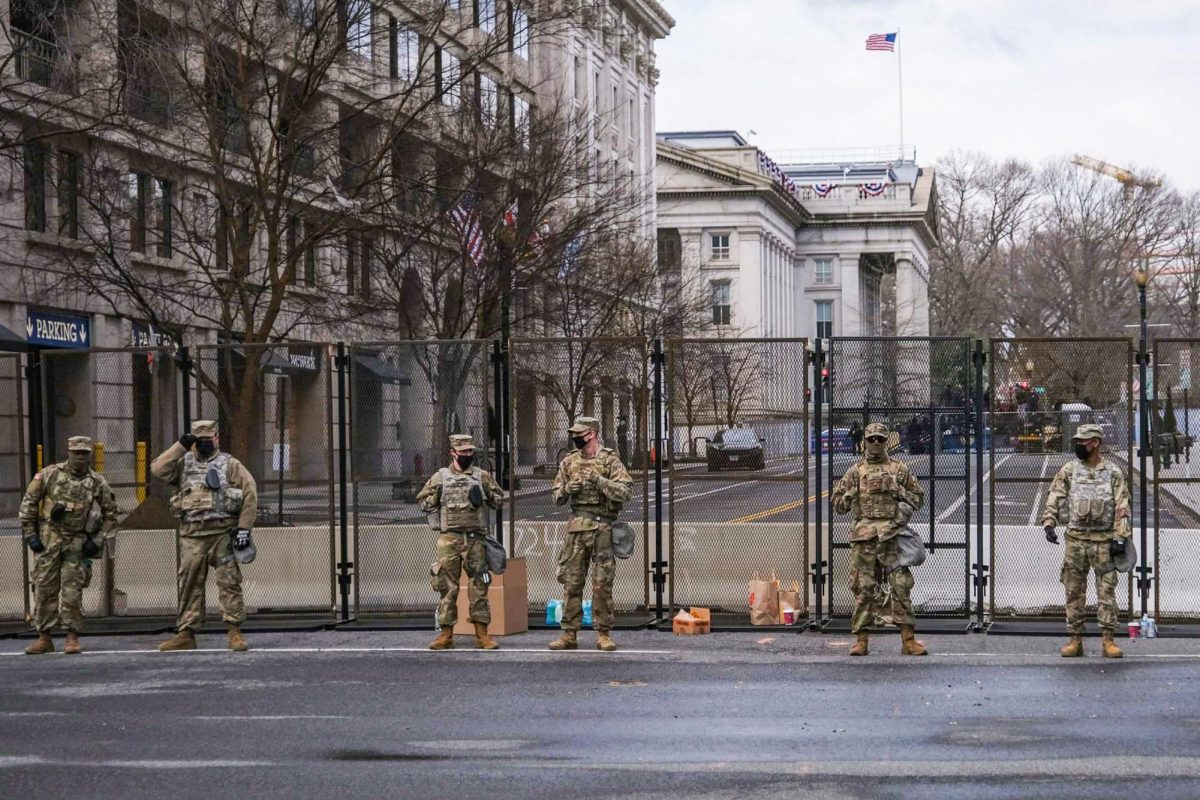GW community members who immigrated to the United States or come from immigrant families say they worry their lives in the United States will be uprooted if former President Donald Trump wins a second term.
Trump’s first term was marked by stringent immigration policies, including an effort to dismantle the Deferred Action for Childhood Arrivals program and heightened xenophobic rhetoric that spread fear and resentment toward immigrants. Now, as he campaigns for a second term, immigrant students and alumni from GW said the possibility of a renewed Trump presidency brings uncertainty about their families’s futures as the Republican presidential nominee has voiced his intentions to roll out mass deportations and tighten border policies that may make it more difficult for migrants to enter and stay in the country.
Senior Javier Orellana said he migrated to the United States in 2016 from El Salvador as an undocumented immigrant and is now protected by DACA, which protects undocumented immigrants brought to the United States as children. Orellana said before the move, his older brother was being “forced into” joining a gang near his home, and his mom decided his family needed to leave El Salvador because they were in “imminent danger.”
El Salvador once had one of the highest homicide rates anywhere in the world outside of a war zone, with an average one homicide per hour in early 2016.
He said he is concerned about Trump being elected because the former president has pledged mass deportation, but he doesn’t know what Trump’s policies would ultimately look like or how they could impact his family, who are in the process of becoming permanent residents.
“I think that will be sort of our main concern because we’re in the process of it, and we don’t know if that would really impact us, at least for my family,” Orellana said.
Trump has promised to deport millions of undocumented immigrants by invoking the Alien Enemies Act, a 1798 law that allows the president to deport any noncitizen from a country that the United States is at war with. He has also suggested he would expand workplace raid efforts. He claimed in April that a surge of undocumented immigrants has led to higher crime rates and drug trafficking in the United States, alleging many come from prisons and “mental institutions,” although experts have said there is no evidence to support these claims.
Orellana said when he and his family first entered the United States in 2016, life “changed so fast” when Trump was elected and entered office in 2017, which was “very hard” because they feared they would be deported by authorities. He said they maintained a “low profile” and tried not to involve themselves in the community or go outside, only leaving their house to go to work, the grocery store or sometimes church.
“During the Trump administration, there was a lot of racist comments happening all over, and it created an environment where immigrants probably were not feeling comfortable being in public,” Orellana said.
Sophomore Isabella Franco, whose parents immigrated from Mexico to California in the 1990s and early 2000s to pursue better educational opportunities, said she has family members in the United States who are DACA recipients. She said they fear they may be forced to leave the country if Trump is reelected and repeals DACA, adding that her aunt and other undocumented family members with U.S.-born children worry about who would care for their kids if DACA is repealed and they are forced to return to Mexico.
Trump tried to end DACA under his first presidency, but the Supreme Court blocked the motion in 2020. Trump’s campaign has said this election cycle that he would once again try to end DACA if elected, which would now face less opposition in the Supreme Court due to its conservative majority.
“With mixed-status families, especially, pushing this narrative criminalizing people who came in illegally, just makes it so dangerous for them because you not only risk splitting apart families, but you affect children,” Franco said.
She said rhetoric from Trump and his allies that suggests that all immigrants in the United States are dangerous is unfair because it generalizes an entire population of people living in the United States based on a handful of negative experiences with migrants crossing the U.S.-Mexico border.
During his campaign, Trump has targeted immigrants from Latin America and the Caribbean Islands, falsely purporting during the presidential debate that Haitian migrants in Springfield, Ohio, were eating residents’s pets, which dragged the city into the national spotlight.
Franco said she’s been impacted by Trump’s negative generalizations of immigrants, as she’s been told to go back to her country — despite being a U.S. citizen by birth — while walking down the street.
“Constantly hearing over and over again about mass deportations, about how everyone that crossed the border is a criminal, it’s a lot of generalization that’s just become really, really harmful, not just to my family, but people in my community,” Franco said.
Diego Portillo, who graduated from GW in May and immigrated from El Salvador in 2016, said his family faced hardships in El Salvador including gun violence. He said he has heard of immigrants in his community applying for asylum and not hearing back about their cases years later, and as more people file for asylum, the system gets even more backed up.
Portillo said he is also concerned about Trump’s effect on the immigration system if he were to win a second term because his policy proposals contradict themselves. He pointed to Trump’s comments earlier this year, in which he stated every student that graduates from American colleges should get a green card to stay in the country despite his efforts to dismantle DACA, which former President Barack Obama created in 2012 to protect high school and college students with immigrant parents.
“That does make me very concerned, the possibility of Trump having a second term will reduce many opportunities for migrants, many of which are trying to barely survive,” Portillo said.
Thomas Guglielmo, a professor of American studies, said a second attempt from Trump to terminate DACA could be successful because the court has become more conservative since 2020. He said he has had conversations with students who are immigrants about their concern for family members who are DACA recipients because of the uncertainty surrounding the policy under a second Trump administration.
“He could very well be successful this time around, it was a five-four decision if I’m not mistaken, and that court has changed its composition since then,” Guglielmo said. “So hundreds of thousands of Dreamers could be expelled from a country that is really the only one they know in many cases.”
Kimberly Morgan, a professor of political science, said there was an initial attempt by the Trump administration to “terrorize” and “round up” unauthorized immigrants — which she said subsided after the administration realized it did not have the personnel to carry out the magnitude of systematic raids that it wanted to — that created fear in immigrant communities. Morgan said she believes that if Trump were elected to a second term, students who have DACA status would be harmed by the stress and fear for themselves and their families.
“There’s a lot of research that shows the stress that follows from having undocumented status and having to worry about these types of things happening in your community,” Morgan said. “So I think there would be a lot of anxiety for sure and impact on our students.”





